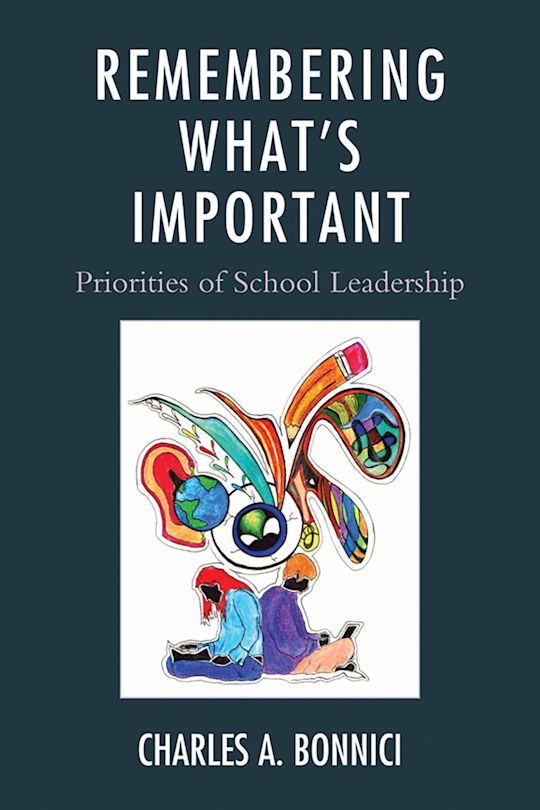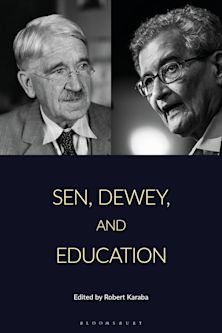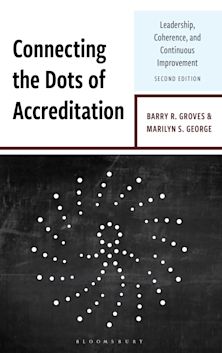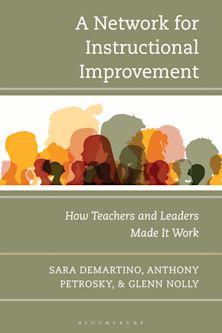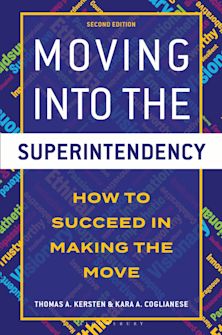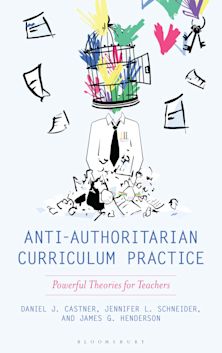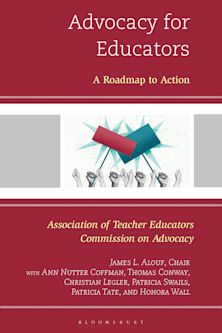- Home
- ACADEMIC
- Education
- Leadership and Management
- Remembering What's Important
For information on how we process your data, read our Privacy Policy
Thank you. We will email you when this book is available to order
You must sign in to add this item to your wishlist. Please sign in or create an account
Description
In Remembering What's Important: Priorities of School Leadership, Charles A. Bonnici addresses several issues facing school leaders through strategies supported by real-life examples and anecdotes. The issues addressed include questions such as:
What is the most urgent issue faced by a new school leader?
How can this leader address the chaos of being both a teacher trainer and evaluator?
What are the school leader's personal responsibilities for hiring, training, and retaining staff?
How does the school leader create a positive learning ambience in a school?
How can this leader address the issues created by the physical plant of the building itself?
How can a principal treat the difficult waters of the social and political context of the outside world that impacts on the school?
How can a school leader insure that the management systems created within a school and the gains in student achievement accomplished are maintained and improved upon after he or she leaves the school?
Table of Contents
Chapter 2 Preface
Chapter 3 Table of Contents
Chapter 4 Introduction
Chapter 5 Chapter 1: Surviving
Chapter 6 Chapter 2: Improving Instruction: Guidelines for the Observation Process
Chapter 7 Chapter 3: Improving Instruction: Alternative Observations and Other Practices
Chapter 8 Chapter 4: Hiring New Staff
Chapter 9 Chapter 5: Training and Retaining New Teachers: The Critical First Week
Chapter 10 Chapter 6: Training and Retaining New Teachers: The Fall Semester
Chapter 11 Chapter 7: Training and Retaining New Teachers: The Spring Semester
Chapter 12 Chapter 8: Creating a Positive School Ambience: Respect, Instruction, Welcome
Chapter 13 Chapter 9: Creating a Positive School Ambience: Support Services, Parental Involvement, Staff Development, Punitive Measures
Chapter 14 Chapter 10: Establishing Formal and Informal Systems for Creating a Positive School Ambience
Chapter 15 Chapter 11: Working with the Custodian and Physical Plant
Chapter 16 Chapter 12: Dealing with the Larger Context: The School District, Media, Advisory Boards and Celebrities
Chapter 17 Chapter 13 Dealing with the Larger Context: Politics, Parents and Panaceas
Chapter 18 Chapter 14: Passing the Baton
Chapter 19 Appendices
Chapter 20 Appendix A: Standard Answer Sheet
Chapter 21 Appendix B: Proctoring Standardized Examinations
Chapter 22 Appendix F: Auditorium Murals
Chapter 23 Acknowledgments
Product details
| Published | Jul 16 2011 |
|---|---|
| Format | Ebook (Epub & Mobi) |
| Edition | 1st |
| Extent | 214 |
| ISBN | 9781610480857 |
| Imprint | R&L Education |
| Publisher | Bloomsbury Publishing |
About the contributors
Reviews
-
In Remembering What's Important: Priorities of School Leadership, author Charles A. Bonnici wastes not time. He hits hard the 'eight key areas' as principals and other leaders pursue a career: living and progressing from being neophytes to experienced school administrators. He reveals leadership 'survival strategies' for hiring and nurturing new teachers; building the school culture; managing the school; and working in the larger social environment with parents, community leaders, and the media. Finally, Charles Bonnici looks at 'passing the baton' to the next generation-making the book important for succeeding as principals move from beginners to educational veterans-in the exciting, challenging, rewarding world of school leadership and improvement!
Bruce S. Cooper, PhD, emeritus professor and vice chair, Division of Administration, Policy and Urban Education, Fordham University
-
Charles Bonnici's writing style is conversational and respectful to all in the educational enterprise. Its strength is in its practicality and the reality base. There are chapters I would use in my own courses, especially related to leaders having to lead themselves before they can be effective leaders of others. This is a book for any school leader, not only for interns or new principals. We all need this refresher to help us see ourselves a little more clearly.
Remigia Kushner, School Leadership Program, Manhattan College, School Leadership Program, Manhattan College
-
New principals and assistant principals often wish the job came with an instruction manual. In this, his second book, Charles Bonnici provides such a manual. Throughout my career in education I have benefited from the wisdom and strategies succinctly presented here. As his student teacher, teacher in his department, and assistant principal in his school, I had the opportunity to observe Bonnici as he developed and honed the guiding principles found in this book. This book is short on theories and filled instead with the nuts and bolts of putting theories into practice illustrated with a wealth of anecdotes told with the wry sense of humor one needs to succeed as an administrator.
Thomas P. Conway, clinical supervisor of student teachers, Pace University and St. John's University
-
So often education texts are written through research rather than from practice. Professor Bonnici's research was over twenty years of daily practice. There is no substitute for his first-hand knowledge and experience. Remembering What's Important doesn't just tap that wealth of experience-it is that wealth of experience-and it is the most valuable text in any educational leader's professional library.
Chris Casal, educator, New York City Deptartment of Education
-
As a former student of Charles Bonnici, his lectures and wisdom have been instrumental to my development as a school leader. Schools are complex organizations that Mr. Bonnici helps you understand through careful analysis and thoughtful reflection. This book is a must read for every novice school leader!
Ivan Tolentino, founding principal, The Active Learning Elementary School
-
Succeeding as a school administrator requires patience, planning, and attention to an ever-growing list of priorities. In Remembering What's Important, Bonnici provides a comprehensive guide full of "survival strategies" for administrators, covering everything from teacher observations to working with custodial staff. This book should be required reading for new school leaders and is an excellent refresher for veterans.
Shannon Fierro, program administrator for formative assessment, San Francisco Unified School District









